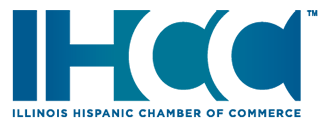The passing of key legislation over the past couple of years — particularly the Setting Every Community Up for Retirement Enhancement Act (SECURE Act) of 2019 and the Coronavirus Aid, Relief, and Economic Security Act (CARES Act) of 2020 — has resulted in significant changes for individuals when it comes to tax planning strategies related to:
- Retirement planning benefits
- Rules for kiddie tax
- Charitable contribution percentages
- Recovery Rebate Credit (stimulus check)
- Unemployment income.
Some of this advice might help our small business members, clients and partners, but they’ll need to take action by December 31, 2020.
For individuals, here are a few tax planning tips to consider:
1. Make your maximum contribution to your 401(k), IRA and H.S.A.’s:
• Individuals can make tax deductible contributions to traditional IRAs and health savings accounts up to April 15 of next year.
• The door closes on Dec. 31 for 401(k) contributions.
All of these will reduce your taxable income in most situations.
2. Cancel your Required Minimum Distribution (RMD) for 2020:
Normally, retirees who have a traditional 401(k) or IRA must take an RMD each year once they reach age 72. The RMD can be sizable and result in a significant tax bill.
For 2020, thanks to the CARES Act, the RMD has been waived. If you haven’t already taken your RMD and don’t need the money, now is the time to cancel it.
3. Take a hardship withdrawal, if needed:
This year has been difficult for many workers who are unemployed or had their hours reduced.
Normally, when someone withdraws money from their retirement funds before they turn age 59 1/2 would pay a 10% penalty and pay regular income taxes that may be due.
With the passage of the CARES Act, those who have been affected by the COVID-19 pandemic can take up to $100,000 out of their retirement (fund) and not pay the extra 10% penalty. You can also pay off the income tax on the withdrawal over a three-year period.
Eligible individuals include those who had COVID-19, have a spouse or dependent diagnosed with COVID-19 or are financially impacted by the pandemic because of a quarantine, unemployment, reduced hours or similar circumstances.
Anyone planning to take a hardship withdrawal to make ends meet should do so prior to Dec. 31.
4. Harvest your capital losses:
If you own stocks that have lost money, you can sell them and deduct up to $3,000 on your federal taxes. That money can offset gains on other stocks or be applied to regular income taxes.
5. If you are in a lower tax bracket, sell stocks that have increased in value:
The end of the year is a good time for some people to sell stocks that have appreciated significantly in value. This is a particularly good strategy for those in the 10% and 12% tax brackets since their capital gains tax may be zero.
6. Make charitable contributions:
Everyone is entitled to a charitable deduction this year. The CARES Act created an above-the-line deduction of up to $300 for cash contributions from taxpayers who don’t itemize. To take advantage of this provision, make your donation by December 31, 2020.
If you’re able to itemize this year, you might consider:
• Bunch two years of contributions into a single year, which would allow someone to claim an itemized deduction every other year.
• If you’re close to being able to itemize deductions, make a few extra charitable gifts before the end of the year.
• You could bump yourself up over the standardized deduction threshold by donating clothing and household goods.
7. Make sure you have enough taxes paid in:
COVID-19 created cash-flow problems for many individuals. Make sure you’ve paid in enough withholding and estimated taxes so it more closely matches your actual tax bill while you have time to fix a problem. If you haven’t paid enough of your taxes in, you may owe a penalty for underpaying taxes.
You can make up the shortfall by increasing withholding on your salary or bonuses. You can also make a larger estimated tax payment at the end of the year.
If you are self-employed or own a business, here are a handful of tax planning tips to consider to reduce your business’ profit before the end of 2020:
• If you own a partnership, corporation, or an S Corporation, pay yourself a reasonable guaranteed payment or wage. This will reduce your company’s taxable income and, depending on specific circumstances, keep you in compliance with some of the IRS’ guidelines.
• Purchase needed supplies for your business in advance of when they will be needed in 2021.
• If there’s equipment or machinery you’ve been meaning to purchase, consider buying it now, even if you won’t start using the new asset until 2021. Additionally, due to the current economic recession due to COVID, you might be able to receive low rate or 0% financing on the new purchase.
• If you received PPP funds from the CARES Act, you won’t be able to deduct the expenses that the funds were used to pay those expenses. This would therefore increase your company’s income. You’ll need to keep that in mind when calculating your company’s profit.

